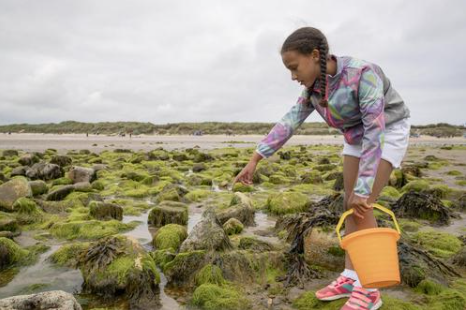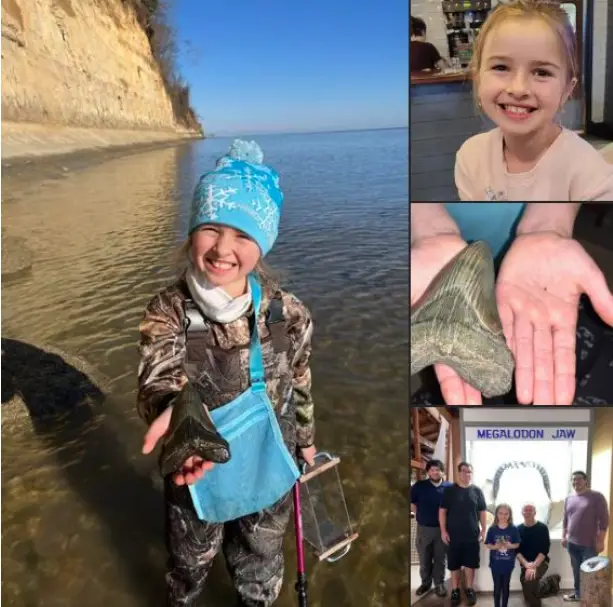Molly Sampson, a nine-year-old 4th grader from Prince Frederick, Maryland, discovered the find of a lifetime while spending time at the Calvert Beach on Christmas morning.
This paleontologist in the making enjoys combing Maryland’s beaches for shark teeth because as she says, “They’re just cool because they’re really old.” Sweet Molly inherited her fascination with fossils from her dad. “She loves treasure hunting,” Molly’s mom, Alicia Sampson, said of her daughter.
Over the years, Molly has collected more than 400 fossilized shark teeth, but her recent find is so fascinating that the story of it vent viral in a matter of days. Namely, this fossil hunter found an enormous, 5-inch-long, chomper belonging to a megalodon, the largest shark to ever swim Earth’s oceans.
The family took the enormous tooth to Stephen Godfrey, a curator of paleontogloy at Calvert Marine Museum in Solomons, who confirmed that Molly’s once-in-a-lifetime find belonged to a megalodon. “Dr. Godfrey explained to Molly that the shark would’ve been the size of a Greyhound bus,” Alicia said. “Molly didn’t know what that was so she looked it up and could not believe it.”
Speaking of the moment she spotted the tooth, Molly told NPR, “I went closer, and in my head, I was like, ‘Oh, my, that is the biggest tooth I’ve ever seen!'” She then added: “I reached in and grabbed it, and dad said I was shrieking.”
According to Godfrey, the tooth Molly found came from the upper left jaw of a megalodon that was probably 45 to 50 feet long and lived about 15 million years ago. “It basically evolved those kinds of teeth so that it could cut out pieces, just like great white sharks do,” Godfrey says. “They sort of chomp the carcass of their prey” rather than swallowing it whole.
The name “Megalodon” includes two Greek words that translate to “giant tooth,” and the one Molly found measures the size of her hand.
As Molly’s story spread around, her family decided to use it as a way to remind young children like their daughter of the importance of spending more time out in the nature.
“We really want to reach other kids and get them excited about like being outside,” Alicia said.


